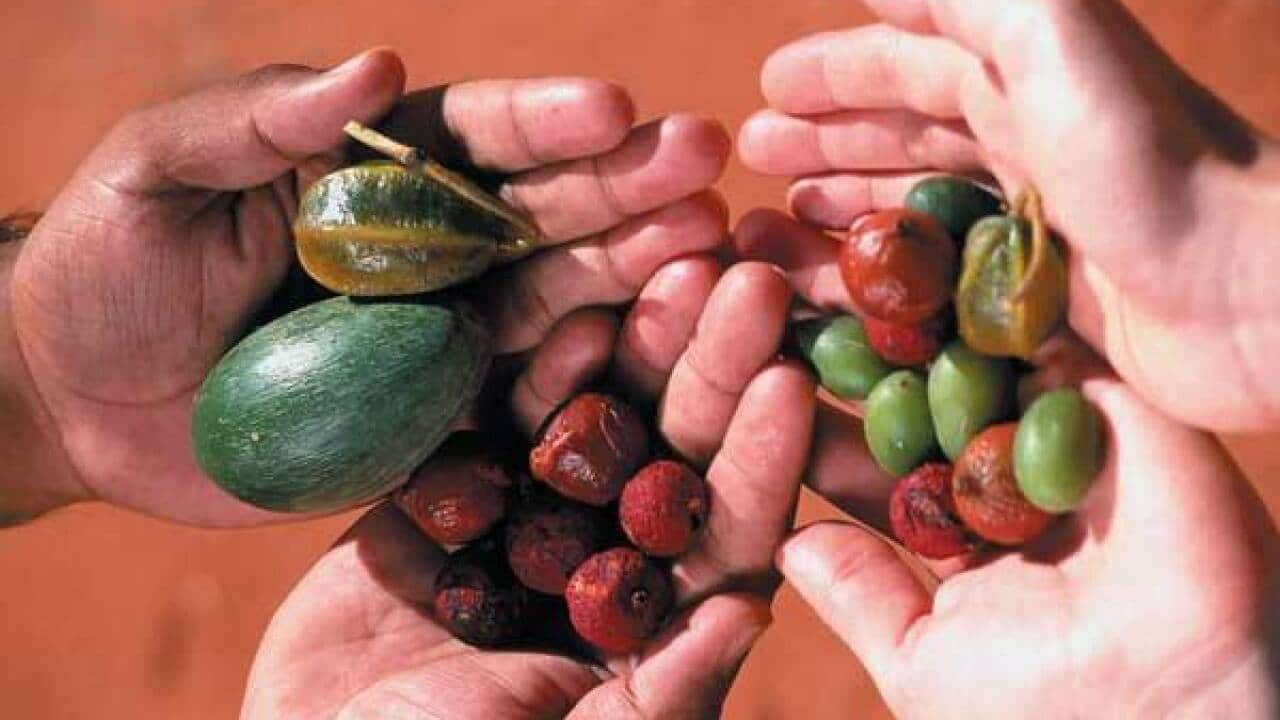I’m a proud Kamilaroi woman with ancestral connections to Country in the northwest of NSW through my mum. I was born and raised in Kooma Country, situated in a small remote town in southwest Queensland on the Balone River. So I’ve always been a freshwater girl.
But I now call Kabi Kabi Country on the Sunshine Coast home and have done for the past 12 years.
I was born in 1973, only six years after the where Australians voted to amend the Constitution to allow the Commonwealth to make laws for Aboriginal people. I grew up in a time and place where Aboriginality wasn’t really celebrated: that was the social norm.
As a result, my grandmother and mother didn’t really talk about Aboriginality. So I didn’t get the opportunity to grow up with the knowledge of traditional foods or how to prepare them.
I realised the effect food has on our physical, emotional and social health, as well as our emotional connection to culture.
When I was about 18 years old, my dad was killed in a car accident. I developed an eating disorder that lasted about 10 years. Then, I found out I had renal cancer when I was in my early 30s.
My grandfather also died from diabetes-related complications and I saw how dietary changes could have prevented that.
All of these things built up. I knew the negative impact that unhealthy foods could have on people but I also knew the positive impact healthy foods could have on health and wellbeing. I realised the effect food has on our physical, emotional and social health, as well as our emotional connection to culture.
This realisation led me to pursue a career path in nutrition and dietetics in my late 30s. My aunties said to me: ‘in the past, your ancestors must have been telling you this the whole time. You’ve just been too stubborn to listen.’
So even though my connection to culture didn't fit the 'norm' when I was younger, I’ve since been able to tap into traditional knowledge, revitalise my connection to culture and build a stronger sense of cultural identity. It’s something that has empowered me.
My aunties said to me: ‘in the past, your ancestors must have been telling you this the whole time. You’ve just been too stubborn to listen.’
I have actively gone out and connected with community members of Kabi Kabi Country. I’ve learned what bush foods are available and where I can find them.
I’ve learned where I can get Warrigal greens, which I often use instead of spinach to make an egg and Warrigal greens pie. I know where to get lemon myrtle, which I dry and make into tea. Or, I can use it to make a chicken marinade. I have saltbush at home, as well as native thyme and basil.

Saltbush and mountain pepper squid. Source: China Squirrel
Using traditional foods to flavour urban meals
I’m currently an and work with Indigenous clients in a range of settings. I have a business, , a home-based clinic and run chronic disease self-management workshops for Indigenous clients, which integrate cooking bush food lessons.
In these workshops, we look at how to use traditional condiments to flavour urban dishes.
For example, we might talk about replacing salt with saltbush. This swap would reduce your sodium intake, which is helpful if you have high blood pressure. But it would still give a meal a salty flavour. This traditional food swap is sustainable because you don’t need to cut out salt from your diet altogether.
I find that these workshops also provide a platform for people with more knowledge than others in this space – bush foods – to share their connections and learnings. I learn from others in the group as well, so education is often two-way.
I’m now raising my daughter with the knowledge of Indigenous culture and bush foods as well, so that my connection to culture can be passed on.
Reconnecting to culture brings me strength
Rejuvenating our connection to culture and traditional food is really important.
Having a connection to culture and community, and a connection to food and Country is a critical determinant of health and wellbeing in our community. By reconnecting to traditional food practices, you’re put back in the driver’s seat so you get to direct where traditional knowledge goes and who learns it.
Indigenous knowledge and food systems are powerful and we need to be proud of our culture and bush foods. Personally, reconnecting to culture and traditional Indigenous foods has made me feel strong. It’s made me feel strong in my decisions, strong in my culture, and strong in confidence.
I’m now raising my daughter with the knowledge of Indigenous culture and bush foods as well so that my connection to culture can be passed on.





